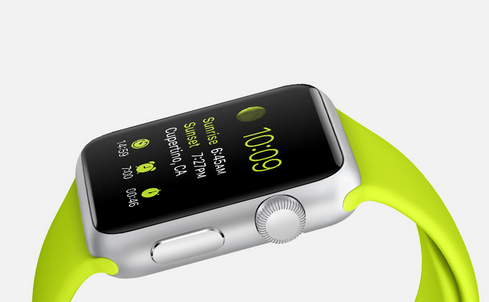Sony Smart Glasses: Not So Smart?Sony Smart Glasses: Not So Smart?
Google Glass flopped as a consumer product. Sony's take on smart glasses doesn't look much different.


Apple Watch: 11 Sweet Gadgets To Buy Instead
Apple Watch: 11 Sweet Gadgets To Buy Instead (Click image for larger view and slideshow.)
Sony has begun taking orders from developers for its own smart glasses less than a month after Google discontinued Google Glass Explorer Edition.
The Sony SmartEyeglass Developer Edition SED-E1 doesn't look smart in the sense of stylish. It looks more like early aviator goggles or eyewear for severe vision correction than a fashion accessory.
"I don't think this device looks so good," said Forrester analyst J.P. Gownder in a phone interview with information.
Sony's glasses are not as cumbersome as Microsoft HoloLens, but Gownder argues that HoloLens has advantages in terms of its immersiveness and communication abilities. "I think Sony is going to face a lot of trouble with this one," he said.
As if seeking to revisit the problems Google faced with Glass, Sony's glasses include a video camera – the device that, in conjunction with Google's past privacy controversies and its ad-based business model, made the wearer seem contemptuous of bystanders' privacy concerns.
"In the consumer market, when you put something on your face, it becomes part of the fashion industry," Gownder said. "It's not just a gadget. And I think Sony is underestimating how culturally difficult this will be."
Beyond consumer applications that share sports scores and display sightseeing information to tourists, Sony wants developers to create augmented reality applications for "professional, deskless use cases."
[ Can HoloLens actually make working fun? Read Geekend: HoloLens Makes Microsoft Cool. ]
Toward that end, the company has released its SmartEyeglass SDK, version 1.0, software that allows developers to create Android apps for its glasses. And Sony has partnered with APX Labs, maker of smart glasses management software Skylight, to provide a way to integrate enterprise services.

(Image: APX)
Gownder, however, doubts Sony's ability to attract enterprise buyers. Sony, he said, doesn't have much of a brand in the enterprise market, unlike Epson, which can get attention for its Movario smart glasses through the relationships that sustain its printer business. "In an enterprise context, I think HoloLens has more to offer."
Sony's glasses will cost developers about half what Google's did: The SED-E1 lists for USD 840, EUR 670, GBP 520, or JPY 100,000. That alone will improve the odds of acceptance. A Forrester survey last year found that 43% of US online adults might be interested in Glass if the price were lower.
More significantly, Sony's glasses are designed for augmented reality – for overlaying graphics on the wearer's field of vision. Glass was designed for complemented reality – graphics are visible to the user in a separate miniature display screen.
"The idea of immersive, augmented reality is a very good one," said Gownder. "Unlike Glass, which is glanceable, this actually places information in your field of view."
Augmented reality has more potential for enterprise applications than complemented reality because information can be presented in context, rather than in an adjacent window. For example, a mechanical maintenance app could use augmented reality glasses to highlight an actual part that needs to be replaced, instead of presenting a generic image of the failed component in a separate display window.
Other smart glasses makers, such as Epson and Microsoft, have also embraced augmented reality, presumably because of its utility in enterprise applications. And if Google continues to develop Glass through its Glass at Work program, chances are that augmented reality will be part of the picture. Sony at least has the right technology. It will need to work hard to win business customers.
Available now for pre-order in the UK and Germany, Sony's glasses are scheduled to be available Germany, Japan, the UK, and the US in March. Enterprise customers in Belgium, France, Italy, Netherlands, Spain, and Sweden will also be able to purchase the devices.
Attend Interop Las Vegas, the leading independent technology conference and expo series designed to inspire, inform, and connect the world's IT community. In 2015, look for all new programs, networking opportunities, and classes that will help you set your organization’s IT action plan. It happens April 27 to May 1. Register with Discount Code MPOIWK for $200 off Total Access & Conference Passes.
About the Author
You May Also Like






